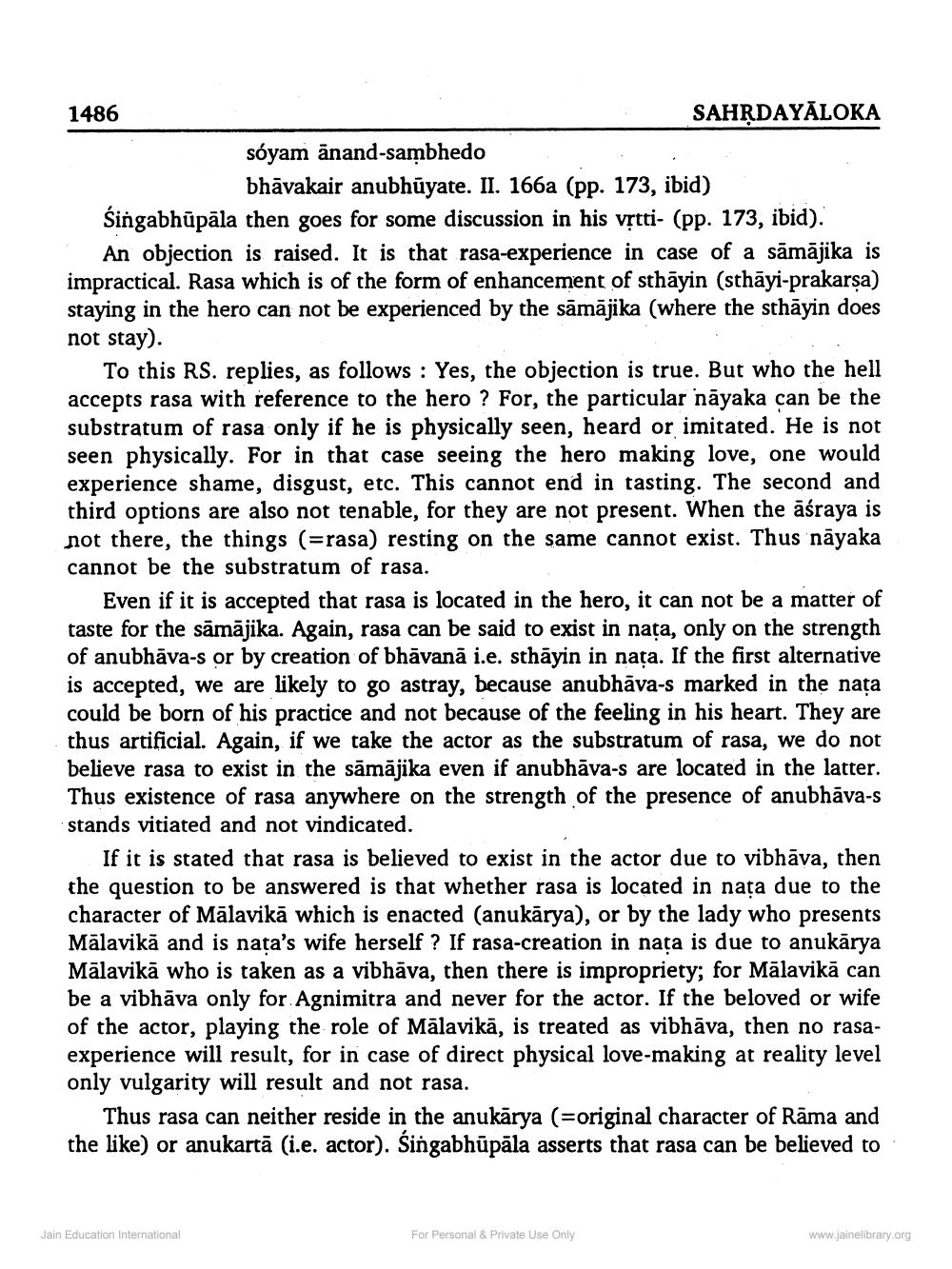________________
1486
SAHRDAYĀLOKA sóyam anand-sambhedo
bhāvakair anubhūyate. II. 166a (pp. 173, ibid) Singabhūpāla then goes for some discussion in his vịtti- (pp. 173, ibid).
An objection is raised. It is that rasa-experience in case of a sāmājika is impractical. Rasa which is of the form of enhancement of sthāyin (sthāyi-prakarsa) staying in the hero can not be experienced by the sāmājika (where the sthāyin does not stay).
To this RS. replies, as follows : Yes, the objection is true. But who the hell accepts rasa with reference to the hero ? For, the particular nāyaka can be the substratum of rasa only if he is physically seen, heard or imitated. He is not seen physically. For in that case seeing the hero making love, one would experience shame, disgust, etc. This cannot end in tasting. The second and third options are also not tenable, for they are not present. When the aśraya is not there, the things (=rasa) resting on the same cannot exist. Thus nāyaka cannot be the substratum of rasa.
Even if it is accepted that rasa is located in the hero, it can not be a matter of taste for the sāmājika. Again, rasa can be said to exist in nata, only on the strength of anubhāva-s or by creation of bhāvanā i.e. sthāyin in nata. If the first alternative is accepted, we are likely to go astray, because anubhāva-s marked in the nata could be born of his practice and not because of the feeling in his heart. They are thus artificial. Again, if we take the actor as the substratum of rasa, we do not believe rasa to exist in the sāmājika even if anubhāva-s are located in the latter. Thus existence of rasa anywhere on the strength of the presence of anubhāva-s stands vitiated and not vindicated.
If it is stated that rasa is believed to exist in the actor due to vibhāva, then the question to be answered is that whether rasa is located in nata due to the character of Mālavikā which is enacted (anukārya), or by the lady who presents Mālavikā and is nata's wife herself ? If rasa-creation in nata is due to anukārya Mālavikā who is taken as a vibhāva, then there is impropriety; for Mālavikā can be a vibhāva only for Agnimitra and never for the actor. If the beloved or wife of the actor, playing the role of Malavikā, is treated as vibhāva, then no rasa experience will result, for in case of direct physical love-making at reality level only vulgarity will result and not rasa.
Thus rasa can neither reside in the anukārya (=original character of Rāma and the like) or anukartā (i.e. actor). Singabhūpāla asserts that rasa can be believed to
Jain Education International
For Personal & Private Use Only
www.jainelibrary.org




